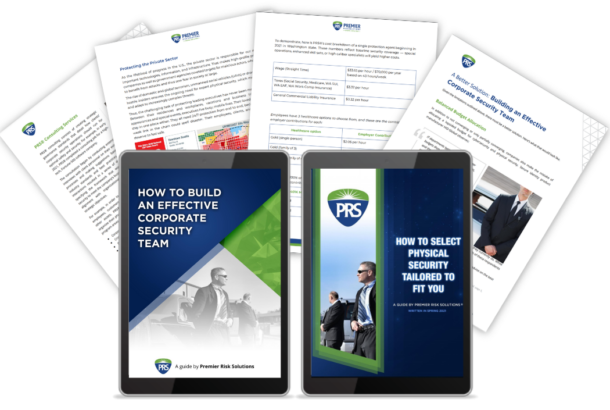Corporate culture is by no means a new concept and both its significance and role in the Executive Protection (EP) world should come as no surprise. Growing up, we had a set of rules to follow in our own homes that may have differed from our friend’s parent’s rules. While we may have come from a very relaxed environment where wearing shoes inside the house and using curt language was acceptable most any time, this was not always the case when we went over to a friend’s home. We knew that over at Jimmy’s house, his mom did not allow any shoes on her carpet and during dinner, only his parents spoke. These differing customs often came with mild criticism and mockery but were accepted as part of the deal when it came to hanging out with Jimmy. It is no different today when doing EP work.

The key to surviving in the EP world not only consists of recognizing the elements of corporate culture but adapting your EP plan to strike a balance between the overall mission of safety and the sometimes quirky desires of the client. On the surface, one could say that the corporate culture includes the values, policies, and generally accepted practices within the organization. In reality, it goes much deeper.
Forbes contributor, Jacob Morgan, defined it well in his 2015 post on How Corporate Culture Impacts the Employee Experience when he said,
“Regardless of what you believe culture is or where it comes from, the one thing that is common is that culture is about feeling.”
As an EP specialist, you may find yourself one day working with a banking or insurance executive where a more formalized appearance and set of interactions is required. The company’s existence for the last century has likely been based on a strong tradition of trust and stability. Business attire is considered mandatory for almost every setting outside of the office and the EP team is expected to meld into that formalism to conform with the company’s image of one people can trust. Communication is almost always strictly professional and the use of “sir”, “ma’am” and “my pleasure” are commonplace. The very next week and you may find yourself on a detail with a young, dot com executive whose instant net worth in the hundreds of millions of dollars was precipitated by a company acquisition or a public offering. In this case, your client may be the sandals and board shorts type of “executive” whose Friday afternoon schedule is often determined by the big wave action in Ocean Beach. They may also frown upon formalized greetings and ask you to address them by their first name. They will occasionally ask for your opinion on things (and as we all know, the usual question involves how long it’s going to take to get to the next place they are going.) The changes in your behavior, mannerisms and dress are based not only on a corporate policy (or lack thereof), but also on an overall feeling that you get for how to adapt to that client’s culture.

Balancing your EP program to adapt to a specific corporate culture is somewhat easier in a formalized setting. There is very little left to chance and ambiguities are often not part of the equation. A rigid structure of protocols, that EP agents can appreciate, is often adhered to without question. We can set our proximity, plan our vehicle positioning and in many instances, know exactly what to expect from our clients. A more relaxed environment, similar to those in the Silicon Valley companies and in the entertainment industry, presents its own unique challenges. The EP must not only be able to adapt in terms of dress and appearance, but also in terms of procedures and protocols. Casual clothing may be acceptable, beards and several days growth of stubble may be encouraged. Similarly, the proximity to a client may be governed completely by the client’s desires and the situation in which they are in public. General practices for remaining near the client may be thrown out the window when they say they don’t want anyone even remotely near them. EP agents must keep in the back of their minds respect for their client’s desire for a certain measure of privacy. I’ve had instances where it seems as though every attempt I made to close the distance between myself and the principal was like the invisible force when similar poles of magnets repel one another. I would move 5 feet closer and he would move 5 feet further away. Often, it is not the client’s desire to have protective agents around them but in fact, a decision mandated by a Board of Directors or other organizational security elements (such as the company’s internal corporate security division, a professional management company, or event/venue policy.) Despite all of this, you just may find that individual agent and individualized corporate cultures may not mesh well together. Even the best attempts at adapting to your client’s corporate culture may not work and a better-suited EP agent is put in as a replacement.

There are oftentimes no definitive answers as to how to handle situations until it comes to that point where one needs to make a decision. The ability to adapt to a changing environment and make decisions based on the totality of circumstances, helps to ensure success in what we do today. Researching a company’s history, speaking with company employees and discussions with colleagues in the industry help give some insight into your clients culture. Doing one’s homework helps in the continuing efforts to balance the need to ensure the client’s safety with the ability to keep the client amenable to having us around.
Trusted Global Private Security Services
Serving US: Seattle, Bellevue, San Francisco, San Jose, Sunnyvale, Cupertino, Fremont, Milpitas, San Mateo, Palo Alto, Sacramento, Los Angeles, Orange County, San Diego, Las Vegas, Reno, Portland, Vancouver WA, Honolulu, Denver, Salt Lake City, Dallas, Houston, San Antonio, Austin, Chicago, Columbus, Atlanta, Tampa, Orlando, Miami, Charlotte, Washington DC, New York City, Boston
Serving International: Vancouver Canada, Mexico, Guatemala, Panama, Brazil, Argentina, Chile, Peru, Ireland, United Kingdom, France, Spain, Italy, Switzerland, Germany, Czech Republic, Netherlands, Poland, Hungary, Turkey, Ukraine, Russia, Saudi Arabia, United Arab Emirates, South Africa, Kenya, Nigeria, Algeria, Egypt, India, Bangladesh, China, Thailand, Cambodia, Vietnam, Philippines, Indonesia, Japan, South Korea

